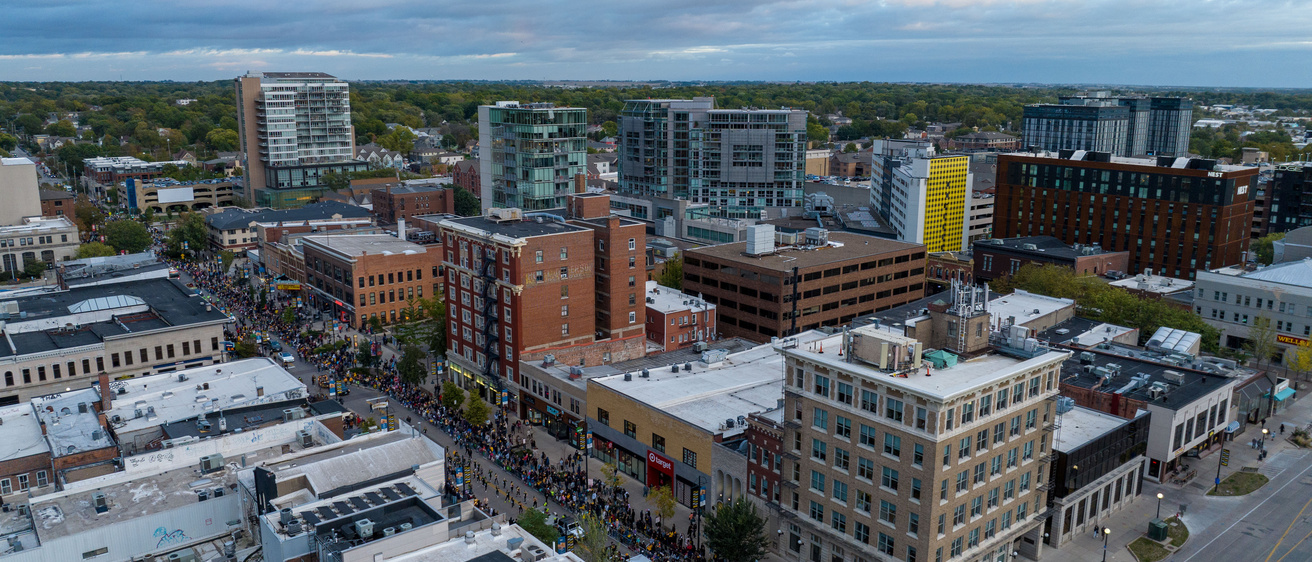Main navigation
The glaucoma fellowship is a one-year program beginning on July 1 of each year.
The glaucoma service has four full-time attending physicians: Drs. Erin Boese, John Fingert, Andrew Pouw, and Marc Toeteberg. Drs. Wallace Alward and Young Kwon are also involved in fellow education. We emphasize both clinical and research training in this fellowship. An additional year of basic research fellowship may be arranged. Our glaucoma fellowship is AUPO FCC approved.
The University of Iowa Glaucoma Center has a passion for eradicating needless blindness due to glaucoma. The war on glaucoma blindness takes place on three fronts: clinical care, teaching, and research. The University of Iowa is at the forefront in all three of these arenas:
- Providing the highest quality patient care with the latest technology
- Educating clinicians, researchers, students, and patients
- Researching the causes of glaucoma and developing tools to aid in diagnosis and treatment
The clinical experience provides extensive training in the diagnosis and treatment of glaucoma. We are the major glaucoma referral center for Iowa and western Illinois, an area with a patient population of about three million. Most of our patients have fairly advanced glaucoma and will provide the opportunity for the fellow to acquire skills in gonioscopy, disc evaluation, and visual field interpretation. The laser and surgical experience is comprehensive and includes trabeculectomy; glaucoma drainage devices (Baerveldt and Ahmed implants); minimally invasive glaucoma surgeries (GATT, KDB, ABiC, iStent), and infantile glaucoma surgery.
Learn more about the Glaucoma Fellowship.
Program Objectives
Fellowship provides extensive training in all aspects of diagnosis & treatment of glaucoma in adults & children. They include gonioscopy, optic disc evaluation, interpretation of visual field tests, lasers (including DSLT), trabeculectomy, glaucoma tube shunts, minimally invasive glaucoma surgeries (including iStent, Kahook Dual Blade, Hydrus, SION, viscocanaloplasty, GATT), phacoemulsification, and pediatric glaucoma surgery. The fellow is also expected to complete a research project.
Clinical Expertise
Our fellowship training combines clinical and surgical experience. As the largest tertiary care center in Iowa, we receive referrals from across Iowa and the surrounding states. Fellows study directly with leading experts and experience a wide spectrum of cases, from the very simple to the most complex.
Training and Education
The Department of Ophthalmology at the University of Iowa has a unique, superlative teaching program. Morning rounds are held Monday, Wednesday, Thursday, and Friday from 8:00 to 8:45 a.m. These are attended by all faculty, fellows, and residents and consist of patient presentations, seminars, and interesting discussions. Every Tuesday morning during the academic year, faculty members present a two-hour lecture covering sections of the Basic and Clinical Sciences course subject material. Additionally, the Glaucoma Service has chart rounds at the end of every clinic, where complex cases of the day are discussed.
Faculty are always available to provide guidance, mentorship, and research assistance. However, glaucoma fellows enjoy a balance of supervision and autonomy to work independently.
Our fellows also become very involved in the training of our residents and medical students both on a one-to-one basis in the clinic, as well as in morning rounds.
Engage in Research
Each glaucoma fellow will design, execute, and complete a research project. Fellows select a faculty mentor who will provide guidance and assistance with the project. Research is presented at the annual Residents' and Fellows' Day in the Spring. Fellows are encouraged to publish and present their research at regional and national meetings.
There are also many opportunities to participate in ongoing research projects of the glaucoma faculty. Research interests in the Glaucoma Service include the molecular genetics of glaucoma, glaucoma cell biology, pediatric glaucomas, glaucoma education, visual field testing, and ocular imaging.
The P.J. Leinfelder Award is given annually by a faculty committee to the fellow who has made the most significant contributions in preparing and delivering their research.
- Visit our most recent Resident/Fellow Research Day program for examples of typical areas of research interest.
- About our Lab Facilities
- Faculty Research Interests
- About the Institute for Vision Research
Board Certification Requirements
Glaucoma is not a Board Certified subspecialty, However, Ophthalmology is Board Certified. Visit the American Board of Ophthalmology for specifics on board certification requirements.
By the numbers
- Number of glaucoma fellows accepted each year: 1
- Length of Fellowship: 1 year
- Faculty Members who train Glaucoma fellows: 4
Salary and Benefits Summary
Salary is based on a post-graduate training level and is set by the Graduate Medical Education (GME) office. Most fellow physicians are paid at the PGY-5 level.
- Competitive Stipends
- Comprehensive medical, dental, hospitalization and pharmacy benefits for residents/fellows and their dependents
- Vacation each year: 3 weeks, for specific information Paid Time Off and Leave Information
